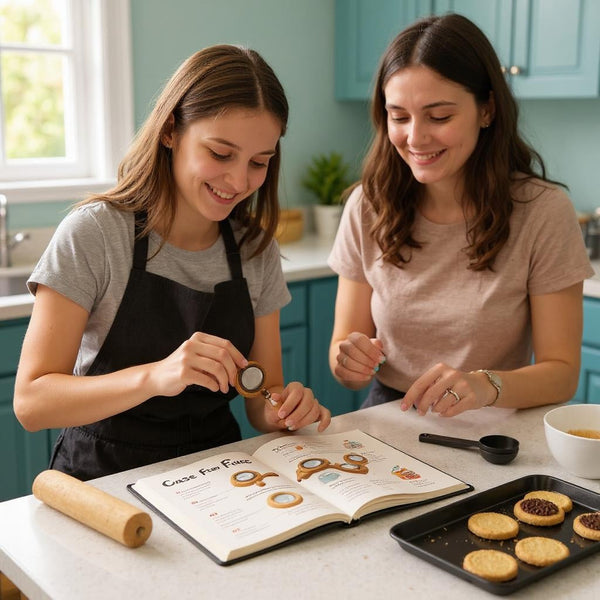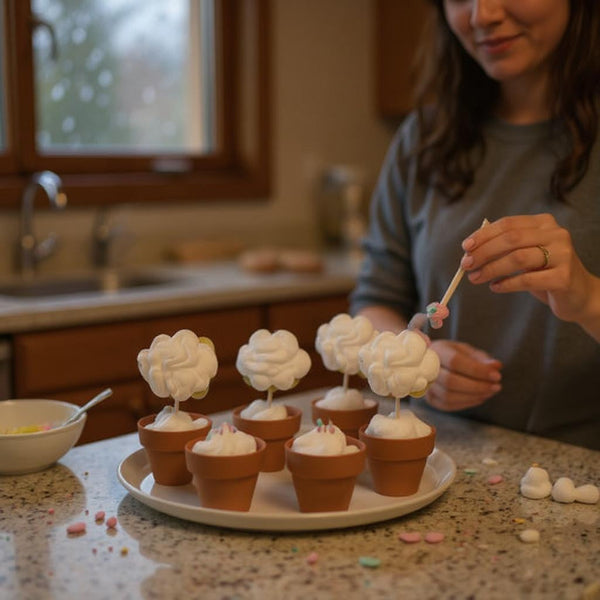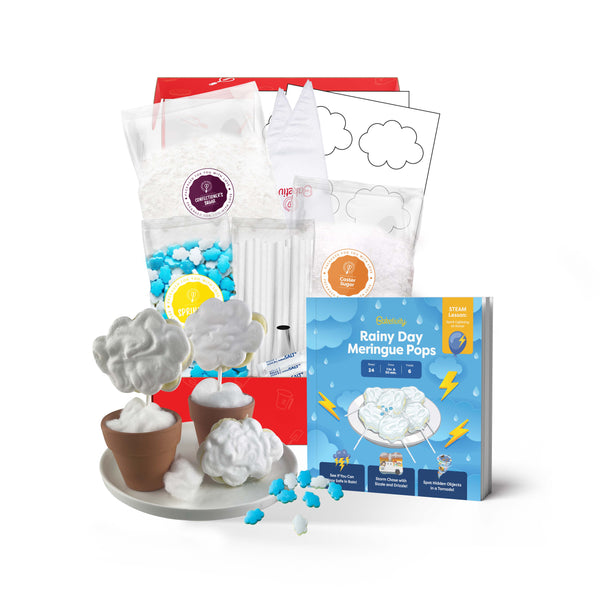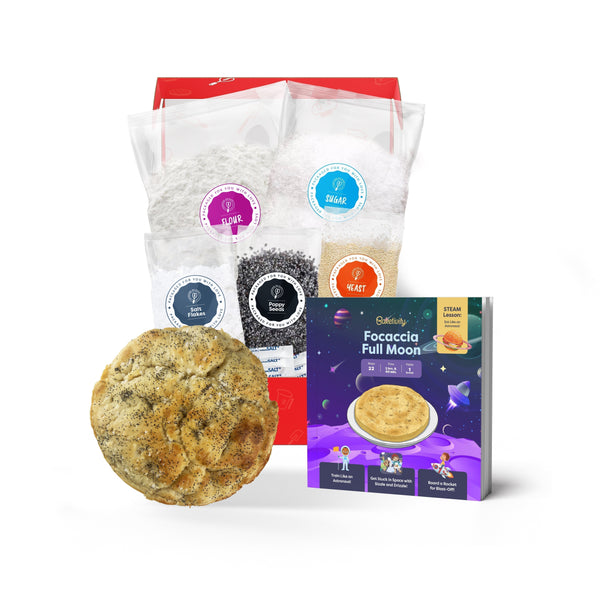Ever watched a child's eyes light up as they create something delicious in the kitchen? We've seen it countless times, and it never gets old. Cooking with kids isn't just about whipping up tasty treats; it's a journey of discovery, learning, and pure joy.
We believe every child deserves a personalized cooking experience tailored to their interests and skill level. From classic cookies to themed cupcakes, there's a world of culinary adventures waiting to be explored. But how do we make sure each young chef gets the most out of their time in the kitchen? What's the secret ingredient to a truly engaging cooking experience for kids? Join us as we dive into the delightful world of personalized kids' cooking experiences. We'll share tips, tricks, and maybe even a funny kitchen mishap or two. Ready to don your apron and embark on a tasty adventure with the little ones?Key Takeaways
- Personalized cooking experiences foster creativity, boost confidence, and teach essential life skills like math and time management in children.
- Age-appropriate recipes, dietary considerations, and safety measures are crucial components of tailored kids' cooking programs.
- Online cooking classes and subscription boxes offer interactive and flexible options for children to explore culinary adventures from home.
- Creating a kid-friendly kitchen space with proper tools and safety measures encourages young chefs to develop their skills safely.
- Incorporating cultural traditions and family recipes into cooking experiences helps preserve heritage and create lasting memories for children.
What Is a Personalized Kids Cooking Experience?
A personalized kids cooking experience is a hands-on culinary adventure tailored to a child's interests, skills, and preferences. It's like creating a custom-made recipe for fun and learning in the kitchen! We've seen firsthand how these experiences can spark creativity and build confidence in young chefs. Imagine your little one donning a mini chef's hat and apron, ready to whip up their favorite treats. From classic cookies to themed cupcakes, the possibilities are endless. These experiences go beyond just following recipes; they're about creating memories and fostering a love for cooking. Have you ever watched a child's eyes light up when they see the results of their kitchen efforts? It's priceless! We once had a young baker who was so excited about her rainbow cupcakes that she insisted on serving them for breakfast. While we can't recommend cupcakes as a morning meal, we can't deny the joy it brought her. Personalized cooking experiences for kids often include:- Age-appropriate recipes
- Themed baking projects
- Hands-on instruction
- Fun kitchen tools sized for small hands
- Educational elements about ingredients and nutrition
Benefits of Customized Culinary Education for Children
 Customized culinary education offers children a world of advantages beyond just learning to cook. It's a gateway to personal growth, creativity, and essential life skills. Let's explore how these tailored experiences enrich young minds and hearts.
Customized culinary education offers children a world of advantages beyond just learning to cook. It's a gateway to personal growth, creativity, and essential life skills. Let's explore how these tailored experiences enrich young minds and hearts.
Fostering Creativity and Confidence
Personalized cooking lessons ignite a child's imagination. They're not just following recipes; they're creating edible art! Picture a 7-year-old proudly presenting a plate of "monster-faced" pancakes to the family. It's hilarious, it's messy, but most importantly, it's theirs. This sense of ownership boosts confidence like nothing else. We've seen shy kids transform into kitchen superstars. Remember little Timmy who wouldn't say boo to a goose? After mastering his signature "Timmy's Terrific Tacos," he couldn't stop chatting about his culinary adventures. Have you ever witnessed a child's eyes light up when they've created something delicious all by themselves?Developing Life Skills
Cooking isn't just about food; it's a crash course in adulting 101. Through customized lessons, kids learn:- Math: Measuring ingredients is fractions in action. Who knew doubling a recipe could make algebra fun?
- Science: Ever seen a child's face when baking soda meets vinegar in a cake? It's pure magic (and chemistry)!
- Time management: Juggling multiple dishes teaches prioritization better than any lecture.
- Teamwork: Cooking together builds cooperation skills. It's like a delicious team-building exercise.
Key Components of a Tailored Kids Cooking Program
 A tailored kids cooking program combines fun, education, and safety to create an engaging culinary experience. We've identified several crucial elements that make these programs successful and enjoyable for young chefs.
A tailored kids cooking program combines fun, education, and safety to create an engaging culinary experience. We've identified several crucial elements that make these programs successful and enjoyable for young chefs.
Age-Appropriate Recipes and Techniques
Our cooking programs consider each child's age and skill level. For younger kids, we focus on simple tasks like mixing and measuring. Older children tackle more complex techniques like chopping and sautéing. We've seen 5-year-olds beaming with pride after decorating sugar cookies, while 12-year-olds confidently whip up homemade pasta from scratch. Remember the time little Sarah, age 6, insisted on making a three-tier wedding cake? We gently steered her towards a more achievable cupcake tower instead. The result? A tower of colorful cupcakes that rivaled any wedding cake in beauty (and definitely in taste)!Dietary Considerations and Allergies
Food allergies and dietary restrictions are a big deal in kids' cooking classes. We're always on our toes, making sure every child can participate safely. Got a nut allergy in the group? No problem! We'll swap out almond flour for coconut flour in our gluten-free cookies.Popular Personalized Kids Cooking Platforms
In today's digital age, personalized kids cooking experiences have expanded beyond the home kitchen. We've seen a surge in platforms that bring culinary adventures right to your doorstep. Let's explore two popular options that are stirring up excitement among young chefs.Online Cooking Classes
Virtual kitchens are the new classrooms for budding chefs. These interactive sessions let kids whip up delicious treats from the comfort of their own homes. Picture this: little Suzy in her pajamas, flour on her nose, giggling as she learns to knead dough alongside peers from across the country. It's like a global bake sale, minus the crumbs on the floor! Online classes offer flexibility and variety. From pizza-making parties to cupcake decorating workshops, there's something to satisfy every taste bud. But here's the real scoop – these classes aren't just about following recipes. They're secret laboratories where math and science come alive. How many quarter cups make a whole? What makes bread rise? Kids are solving these puzzles while creating edible masterpieces. Have you ever wondered how to keep a group of kids engaged through a screen? These platforms have cracked the code with:- Live demonstrations
- Interactive Q&A sessions
- Virtual high-fives for culinary victories
Subscription Boxes
Monthly surprise packages are like Christmas morning for little chefs. Subscription boxes bring the excitement of unboxing together with culinary exploration. It's like having a treasure chest delivered to your door, filled with recipes, ingredients, and kitchen tools. These boxes are designed to grow with your child. One month, they might be crafting rainbow pasta; the next, they're learning to roll sushi. It's a culinary journey around the world, without leaving the kitchen. The beauty of these boxes lies in their ability to:- Introduce new flavors and cuisines
- Teach kitchen safety with kid-friendly tools
- Encourage family bonding through shared cooking experiences
- Reading and following instructions
- Measuring and portioning
- Time management
Creating a Personalized Cooking Space at Home
A personalized cooking space at home sets the stage for kids to explore their culinary creativity. We'll dive into the essentials for crafting a kid-friendly kitchen environment that's both fun and safe.Essential Tools and Equipment
Kids need the right tools to cook up a storm. Here's what we recommend:- Child-sized aprons and chef hats for that professional feel
- Colorful, non-slip mixing bowls
- Plastic measuring cups and spoons
- Silicone spatulas and whisks
- Safety knives designed for little hands
- Step stools for reaching countertops
Safety Measures for Young Chefs
Safety comes first in any kitchen, especially when kids are involved. Let's look at some key safety tips:- Establish clear rules, like washing hands before cooking
- Teach proper knife handling techniques
- Keep a fire extinguisher within reach
- Use oven mitts to handle hot pots and pans
- Supervise use of appliances like blenders or mixers
Incorporating Cultural and Family Traditions
When it comes to personalized kids cooking experiences, blending cultural heritage and family traditions creates a recipe for success. Have you ever wondered how to pass down your grandmother's secret sauce or your uncle's famous barbecue rub to the next generation? We've got you covered! Cooking is like a time machine, transporting us back to cherished memories and connecting us with our roots. By introducing kids to traditional dishes, we're not just teaching them how to cook; we're sharing stories, history, and a sense of belonging. Remember the first time you helped roll out tamales or kneaded dough for challah? Those moments stick with us forever. Let's spice things up with some cultural fusion! Encourage kids to mix and match flavors from different cuisines. Imagine a sushi burrito or a pizza topped with tandoori chicken. The kitchen becomes a playground for cultural exploration, and the results can be hilariously delicious. We once had a young chef combine sauerkraut with maple syrup – talk about a flavor adventure! Family recipes are treasures waiting to be discovered. Why not organize a "family cookbook" project? Kids can interview relatives, collect recipes, and even illustrate the dishes. It's a fantastic way to preserve family history and create a lasting keepsake. Plus, it's an excellent opportunity for some intergenerational bonding. Don't forget about holiday cooking! Each celebration brings its own set of culinary traditions. From decorating gingerbread houses to frying latkes, these activities are perfect for creating lasting memories. And let's be honest, who doesn't love an excuse to eat more cookies?Measuring Success: Milestones in a Child's Culinary Journey
Tracking a child's progress in the kitchen is like watching a seed grow into a flourishing plant. We've seen countless young chefs blossom, each at their own pace. Remember little Susie, who once mistook salt for sugar in her first batch of cookies? Now she's whipping up gourmet desserts that would make professional pastry chefs jealous!Fundamental Skills Mastery
As kids embark on their culinary adventures, they'll tackle basic skills that form the foundation of cooking:- Measuring ingredients accurately
- Mixing and stirring techniques
- Safe knife handling (age-appropriate)
- Understanding kitchen terminology
- Following recipes step-by-step
Creativity and Experimentation
Once the basics are under their belt, children often start to flex their creative muscles:- Tweaking recipes to suit their tastes
- Inventing new flavor combinations
- Plating dishes with artistic flair
- Suggesting meal ideas for family dinners
Kitchen Safety and Cleanliness
A crucial aspect of culinary education is learning to keep the kitchen safe and tidy:- Washing hands before and during food prep
- Cleaning up spills promptly
- Storing ingredients properly
- Understanding food safety basics
Nutritional Knowledge
As children progress, they'll gain insights into the nutritional value of foods:- Recognizing food groups
- Understanding balanced meals
- Making healthier ingredient choices
- Reading nutrition labels
Advanced Techniques
For the truly passionate young chefs, mastering more complex skills is the next step:- Using advanced kitchen tools
- Perfecting timing in multi-dish meals
- Experimenting with culinary techniques
- Adapting recipes for dietary needs
Sharing and Teaching Others
The ultimate milestone? When children start sharing their knowledge:- Teaching siblings or friends to cook
- Explaining cooking processes to adults
- Hosting mini cooking classes for family
- Contributing recipes to family cookbooks




